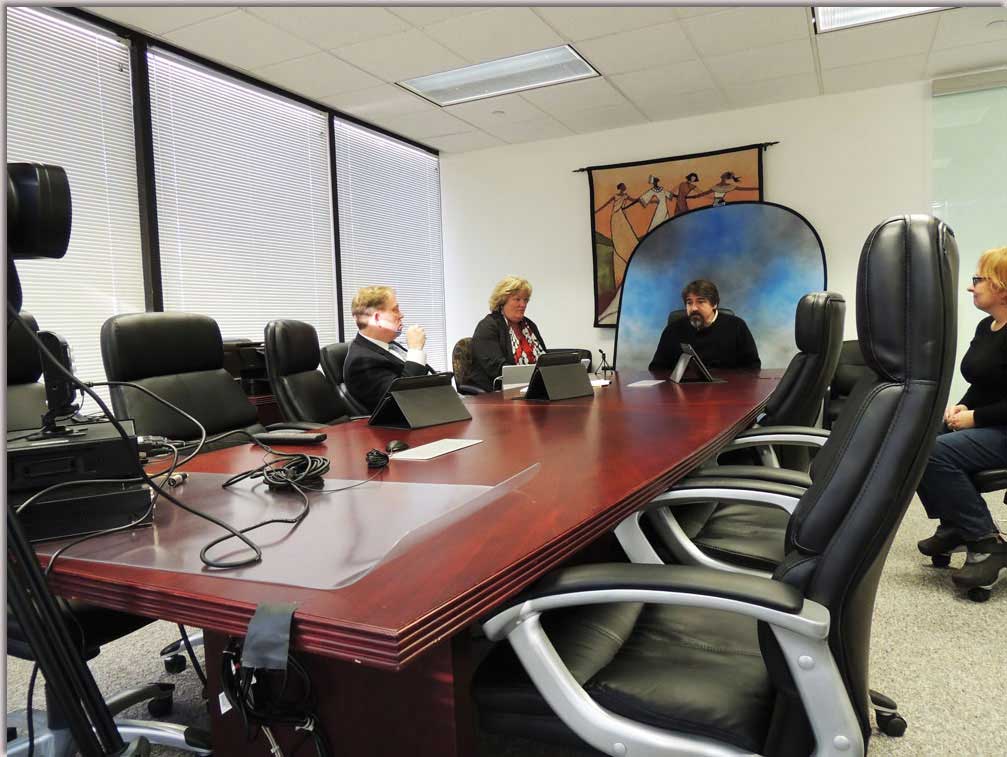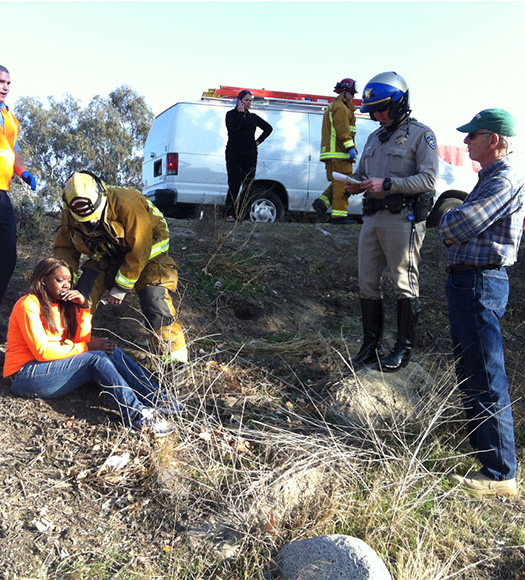The Value of Legal Video Clip Depositions in Modern Legal Services: What You Must Know
Lawful video clip depositions have ended up being important in today's legal landscape. They provide a multidimensional view of witness testaments that traditional records simply can not match. By capturing both spoken and non-verbal communication, these depositions enhance the general understanding of a witness's reliability. Nevertheless, the efficiency of video depositions rests on different elements, including conformity with legal requirements and best methods (legal video depositions). Checking out these components discloses their true value in modern-day lawful solutions
What Are Legal Video Clip Depositions?
Legal video clip depositions serve as a vital device in the lawsuits process. They involve recording witness testaments in a video format, recording both verbal and non-verbal interaction. This technique allows attorneys to document the disposition, expressions, and responses of witnesses, providing a richer context for the testimony. Typically conducted in a controlled setting, these depositions are led by lawyers that ask inquiries while a court press reporter records the discussion. The resulting video can be vital for trial preparation, as it allows attorneys to evaluate the trustworthiness of witnesses and improve their techniques. Furthermore, legal video depositions can be utilized in numerous lawful contexts, ranging from civil disagreements to criminal cases. The aesthetic and auditory aspects of video depositions enhance the presentation of proof, making it a necessary element in the modern-day legal landscape. Overall, they contribute significantly to the effectiveness and effectiveness of lawful process.

Advantages of Video Clip Depositions Over Typical Methods
Video depositions use many benefits contrasted to typical techniques of taking witness testaments. One considerable advantage is the capacity to capture both visual and audio components, giving an extra complete document of the witness's statements. This double layout enhances clarity and permits lawyers to reference certain subtleties throughout test preparation. Furthermore, video depositions facilitate remote involvement, making it much easier for witnesses that may be inaccessible for in-person appearances as a result of geographical restraints or health issues.Moreover, video clip depositions can accelerate the overall deposition procedure, reducing the moment and costs connected with traveling and logistics. They likewise improve access, as recorded depositions can be quickly shared amongst lawful teams and referenced at any moment. This ease contributes to far better instance management and prep work. Generally, video depositions stand for a modern, efficient approach to gathering witness testimonies, aligning with the evolving needs of the legal profession.
The Function of Body Movement and Tone in Testimonies

In lawful video depositions, body movement and tone play vital duties in sharing a witness's integrity and reliability. Nonverbal cues can offer insights into a witness's emotion, influencing just how their statement is perceived. Comprehending the influence of these elements is necessary for lawyers and jurors alike when reviewing the reliability of a statement.
Nonverbal Interaction Insights
While spoken communication is typically stressed in legal testimonies, nonverbal cues such as body language and tone play a crucial role in conveying reliability and emotion. Observers of depositions may note that a witness's posture, gestures, and facial expressions can greatly influence assumptions of reliability. Constant eye get in touch with may signal confidence, while avoiding gaze can recommend dishonesty or discomfort. Similarly, the intonation-- its volume, pace, and pitch-- can present sensations of genuineness or unpredictability. Attorneys have to be in harmony with these nonverbal signals, as they commonly offer critical context that enhances spoken words. Understanding these nuances can improve the effectiveness of depositions and affect the outcome of lawful procedures.
Psychological Tone Effect
The emotional tone shared during lawful testimonies greatly affects how a witness is regarded. Body language, singing inflections, and facial expressions play essential roles in forming the narrative of a testament. A witness exhibiting self-confidence through constant eye contact and a tranquil tone can infuse a sense of integrity and engagement. On the other hand, signs of stress and anxiety, such as fidgeting or a shaky voice, may bring about hesitation concerning their account. The subtleties of psychological expression can affect the interpretation of truths, making it essential for attorneys to recognize these hints. In video clip depositions, the auditory and aesthetic parts combine, highlighting the significance of emotional tone in sharing sincerity and reliability within the lawful process.
Reputation and Credibility
An essential factor in establishing integrity and trustworthiness during statements hinges on the witness's body movement and intonation. Viewers often rely on non-verbal hints-- such as eye get in touch with, pose, and motions-- to analyze a witness's genuineness. A witness who preserves eye contact and shows open body language may be perceived as more dependable and truthful than one who stays clear of eye call or shows up closed off. Additionally, tone of voice plays a vital role; a steady, tranquil tone can enhance the integrity of the statement, while fluctuations in pitch or quantity might increase doubts. Inevitably, the mix of body language and singing tone substantially influences how a witness's declarations are gotten and click reference interpreted in a lawful discover this info here context.
Finest Practices for Conducting Video Clip Depositions
Carrying out video depositions calls for careful preparation and execution to assure a clear and reliable discussion of statement. First, it is vital to select a quiet, well-lit place to reduce disturbances and safe optimal video clip quality. The tools should be checked beforehand, consisting of video cameras, microphones, and lights, to avoid technical concerns during the deposition.Next, parties included must evaluate the layout and procedures in advance, ensuring that everyone comprehends their duties. The deponent should be informed on the procedure, consisting of how to respond plainly and concisely.Additionally, keeping a professional attitude throughout the session is essential. This includes avoiding talking over one an additional and confirming that all concerns are guided suitably. It is important to videotape the deposition in a format that allows for easy playback and review, preserving the stability of the statement for future use.
Legal Considerations and Compliance Issues
Exactly how do legal considerations and compliance problems affect the efficiency of video depositions? Lawyers must navigate a complex landscape of policies, guaranteeing that video depositions adhere to jurisdictional rules and standards. Conformity with regulations worrying privacy, approval, and tape-recording techniques is important. For example, obtaining specific consent from all celebrations included is required to stay clear of legal repercussions.Additionally, the admissibility of video clip evidence in court can rest on conformity with procedural requirements. Ensuring that the tools utilized meets technological requirements is also vital, as bad quality can threaten the deposition's reliability.Moreover, attorneys must recognize any details state legislations that govern video clip depositions, as these can vary substantially. Failure to resolve these considerations can not just endanger the honesty of the deposition however additionally affect the total case approach, ultimately influencing the client's legal results.
How Video Depositions Influence Jury Understanding
While video clip depositions can function as effective tools in legal process, their influence on court assumption is significant. The auditory and aesthetic components of video recordings supply jurors with a more complete understanding of witness disposition, reputation, and emotional responses. This multimedia technique can boost the jurors' ability to evaluate the integrity of testament compared to conventional text-based transcripts.Moreover, video clip depositions permit jurors to observe body language, tone of voice, and faces, every one of which can influence their analysis of the witness's statements. The presence of a witness on screen can humanize them, promoting compassion and link, which might guide jurors' opinions. Conversely, a witness who appears incredibly elusive or undependable on video may result in unfavorable understandings that influence a jury's decision. Eventually, the vibrant nature of video clip depositions plays a crucial duty in forming just how jurors analyze proof and reach their judgments.
The Future of Video Clip Depositions in Legal Technique
As innovations in technology remain to improve the lawful landscape, the future of video clip depositions is positioned for considerable development. Advancements such as expert system, online truth, and enhanced video conferencing devices are anticipated over at this website to enhance the deposition procedure and enhance ease of access. Legal professionals might use AI-driven analytics to examine witness integrity and situation strength more effectively.Moreover, the assimilation of digital truth could allow courts to experience immersive simulations of depositions, supplying deeper context and understanding. Additionally, the fad toward remote depositions is likely to linger, using greater adaptability for lawyers and clients alike.As remote work becomes progressively stabilized, video depositions will likely come to be typical practice, reducing expenses and time restraints connected with standard approaches. On the whole, these technological advancements assure to improve the performance, efficiency, and accessibility of video clip depositions in legal technique, eventually transforming how lawyers get ready for trial.
Often Asked Questions
Just How Much Do Lawful Video Depositions Typically Expense?

Can Video Clip Depositions Be Used in Any Sort Of Instance?
Video depositions can be used in numerous types of cases, consisting of civil, criminal, and family members law. Their versatility permits lawyers to present witness statements properly, adjusting to the certain needs of various legal situations.
What Devices Is Required for a Video Clip Deposition?
To perform a video deposition, vital devices consists of a high-quality camera, microphone, illumination, and a dependable recording device. Furthermore, a computer with modifying software program might be essential for post-production and formatting the last video clip.
For how long Does a Typical Video Deposition Last?
A typical video deposition lasts between 2 to 4 hours, relying on the intricacy of the instance and the variety of concerns presented. Prolonged sessions may happen, however breaks are typically incorporated for participant convenience.

Are Video Clip Depositions Admissible in Court?
Video clip depositions are usually permissible in court, supplied they abide by legal requirements and guidelines of evidence. Their usage boosts clearness and protects witness testimony, aiding in the judicial procedure throughout hearings and trials. Legal video clip depositions have actually ended up being vital in today's legal landscape. In addition, lawful video depositions can be utilized in various lawful contexts, ranging from civil conflicts to criminal cases. In addition, video clip depositions help with remote participation, making it easier for witnesses that may be unavailable for in-person looks due to geographical restrictions or health issues.Moreover, video clip depositions can speed up the overall deposition procedure, decreasing the time and costs linked with travel and logistics. Making certain that the devices used satisfies technical criteria is likewise important, as inadequate high quality can undermine the deposition's reliability.Moreover, lawyers must be mindful of any details state legislations that control video clip depositions, as these can vary considerably. Additionally, the pattern toward remote depositions is likely to linger, providing better versatility for customers and lawyers alike.As remote work ends up being increasingly normalized, video clip depositions will likely become conventional method, minimizing expenses and time restrictions connected with standard methods.